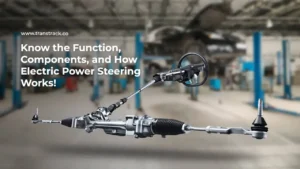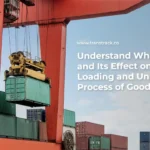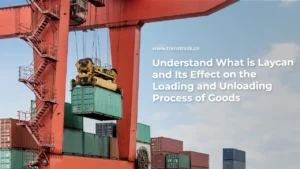Learn about Supply Vessels in The Oil, Gas and Energy Industry!
Posted on May 17, 2024 by Nur Wachda Mihmidati

Indonesia, with its vast maritime area and rich natural resources, relies heavily on various types of vessels to support its various economic sectors. Among these vessels, supply vessels occupy a particularly important role. Supply vessels, or support vessels, are specially designed to transport supplies, fuel, equipment and personnel to locations on the high seas. They play a vital role in ensuring smooth operations in the oil and gas, fishing, tourism, and even military industries.
In this article, we will explore the various functions of supply vessels, how they support various sectors of the economy, and the importance of the latest technology such as Hybrid GPS from TransTRACK to ensure efficient and safe operations on the high seas.
What is a Supply Vessel
A supply ship, also known as a support ship, is a type of ship designed and used to support operations at sea. This ship has the main function of transporting supplies, fuel, equipment, and personnel to other ships at sea, especially ships involved in long-distance operations such as warships, oil and gas exploration vessels, or research vessels.
Functions of Supply Vessels
Support vessels have various important functions in supporting maritime operations, especially for the offshore oil and gas industry, military, and other supporting operations. Here are some of the main functions of support vessels according to the needs that have been mentioned:
Carrying Construction Raw Materials
Support vessels are often used to transport construction raw materials such as cement, concrete, steel, and other materials needed for the construction and maintenance of offshore platforms, ports, or other maritime structures.
Carrying Equipment for Drilling
Support vessels are designed to transport drilling equipment, including drilling rigs, drill pipes, and related tools. This equipment is essential for offshore oil and gas drilling operations.
Carrying Mechanical Equipment and Parts
These vessels also transport mechanical parts and equipment required for maintenance and repair of machinery and equipment on other vessels or at offshore facilities.
Carrying Some Materials
In addition to raw materials and equipment, supply vessels also transport various other materials required for offshore operations, including chemicals, lubricants, and various types of goods needed to support industrial activities.
Carrying Crew Supplies
Supply vessels also carry daily necessities for the crew working on the vessel or offshore platform, such as food, clean water, clothing, and cleaning supplies. They also often transport personnel to and from offshore platforms.
Support vessels are generally equipped with a range of facilities to handle these diverse loads, including cranes, spacious open decks and tanks for storing liquids. These vessels play a crucial role in ensuring maritime operations can run smoothly and efficiently, by providing the logistics needed without having to return to land for replenishment.
The Role of Supply Vessels in the Indonesian Economy
Supply vessels play a very important role in Indonesia’s economy, especially given the country’s geographical characteristics as an archipelago with significant natural resources in the maritime and offshore sectors. Here are some of the key roles of support vessels in the Indonesian economy:
Offshore Oil and Gas Industry Support
Indonesia has significant oil and gas reserves offshore. Support vessels support oil and gas exploration and production operations by transporting drilling equipment, fuel and other logistical needs. This helps ensure the smooth operation of the energy sector, which is a major contributor to the Indonesian economy.
Maritime Infrastructure Development
Support vessels assist in the transportation of raw materials and equipment for the construction and maintenance of maritime infrastructure such as ports, bridges and offshore facilities. Good infrastructure is essential to support maritime trade and logistics.
Support for the Fishing Industry
Support vessels also support the fishing industry by transporting supplies, fuel and equipment for fishing vessels. The fisheries industry is one of the most important sectors in Indonesia’s economy, especially for exports and the livelihood of coastal communities.
Maritime Trade Facilitation
By transporting various goods and necessities from one island to another, supply vessels help facilitate inter-island trade. This is important for the distribution of basic goods, industrial raw materials, and finished products, which in turn supports economic growth in various regions.
Support for Maritime Tourism
Supply vessels can also play a role in supporting marine tourism by providing logistics to resorts and tourist destinations located on remote islands. Maritime tourism is a rapidly growing sector in Indonesia and a significant source of foreign exchange.
Enhancing National Resilience
In the context of defense and security, supply vessels support military operations and maritime patrols by providing logistics and supplies needed by patrol vessels and naval fleets. Strong national security has a positive impact on economic stability.
Increased Employment
The supply vessel industry also creates jobs for many people, from ship construction workers, ship crew, to support labor at the port. This contributes to reducing unemployment and improving people’s welfare.
With these roles, supply vessels are a vital component in ensuring various economic sectors in Indonesia can operate efficiently and productively. This not only supports economic growth but also strengthens connectivity between regions in Indonesia.
Supply vessels play a crucial role in supporting various economic sectors in Indonesia, ranging from the oil and gas industry, fisheries, to marine tourism. The existence of supply vessels ensures maritime operations run smoothly and efficiently, as well as supporting infrastructure development and inter-island logistics distribution. With their strategic role, supply vessels contribute significantly to the country’s economic growth and stability.
To improve the efficiency and safety of supply ship operations, reliable navigation and communication technologies are essential. One innovative solution is the use of TransTRACK’s Hybrid GPS, which combines satellite and Global SIM Card networks. This technology ensures coverage remains optimal even in high seas areas that often experience signal difficulties. With Hybrid GPS, you can ensure your supply vessels are always connected, improving the coordination and responsiveness of maritime operations.Choose TransTRACK with Hybrid GPS for reliable navigation and communication solutions on the high seas.
Recent Post
Know the Function, Components, and How Electric Power Steering Works!
December 24, 2025Know the Types of Buses Based on Their Model, Size, and Capacity!
December 22, 2025Topic :
Recommended Articles

 Bahasa Indonesia
Bahasa Indonesia








